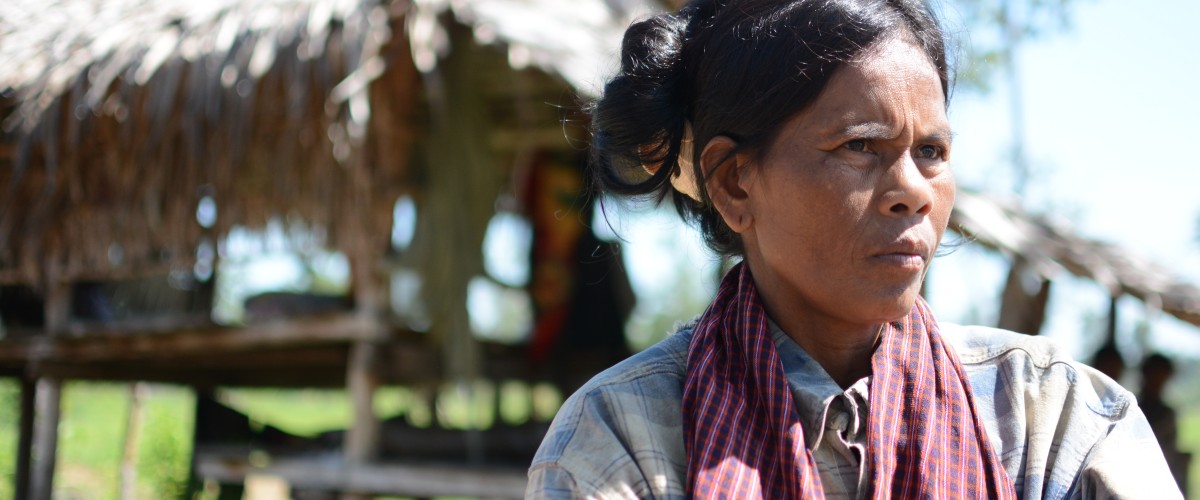There is a distance in her eyes. She sees us Barang, or white people, standing on her land and acknowledges us in the traditional, respectful way.
Her hands clasped together as if in prayer and a slight bow of her head. There is no laughter in her voice, no smile on her lips. The absence of joy is a far cry from the loving and hope filled families we’d visited earlier in the week. Instead her face shows lines of worry, etched in to her skin by the hot sun.
This is Hei Mao, a widow and mother of seven children. Like so many in this land, she has lost two children to disease and is the sole provider for her children. Hei lives close to the mountains, on high ground given to her by the government. The hope was that the people would till the ground and make farms out of this vacant land. Hei and her children hand hoed the trees and roots from the ground, at times eating those same roots out of desperation, and attempted to plant crops.
Hei’s arms are covered by a loose fitting man’s shirt to protect her self from the sun and because these are the cooler months, times of rain.
Like dutiful guards, the dark thunder clouds roll off the hills each afternoon, unloading water on to the land in giant droplets. And still the water doesn’t stay. The land is too high and the soil can’t retain the moisture.
But there is HOPE. This family’s need has been heard.
In time, water diviners will arrive, ready to identify a water table beneath the surface of this dry land. Local villagers will themselves dig deep in to the soil while contract workers will place concrete rings to hold the walls up, stacking as they go until the well reaches ground level. Then a concrete apron will be poured around the well’s opening and a simple rope pump will be installed to haul the water up. During this time, HOPE will facilitate discussions around how the well will be used. Hei and her children as well as surrounding families will learn how to keep the well clean, how to do all cleaning away from the opening and how to manage water allocation.
And from there, Hei’s options will open. She won’t need to drink the murky, muddy water from small pools. She’ll have water for crops, for cattle, for rice, for food. She’ll have hope.
For now, she waits. With your help, she won’t wait long.


